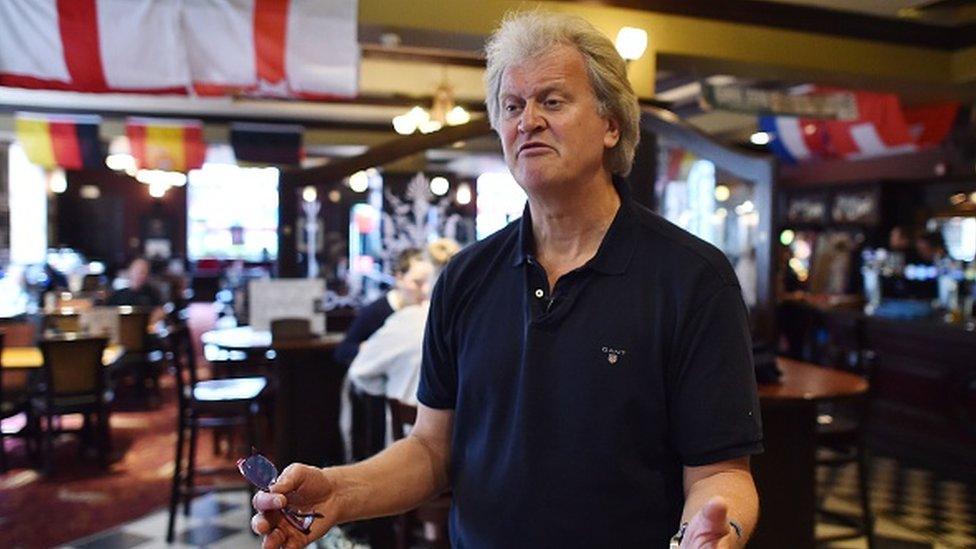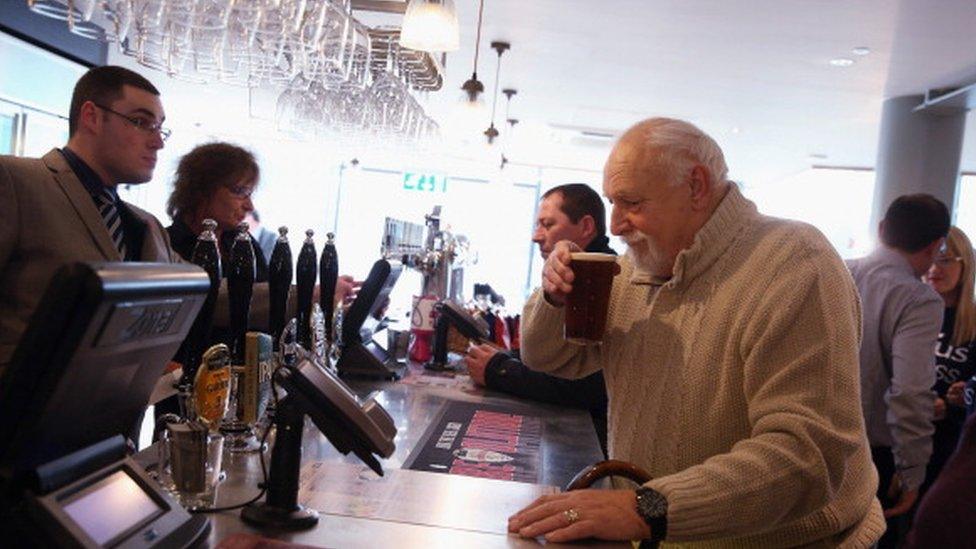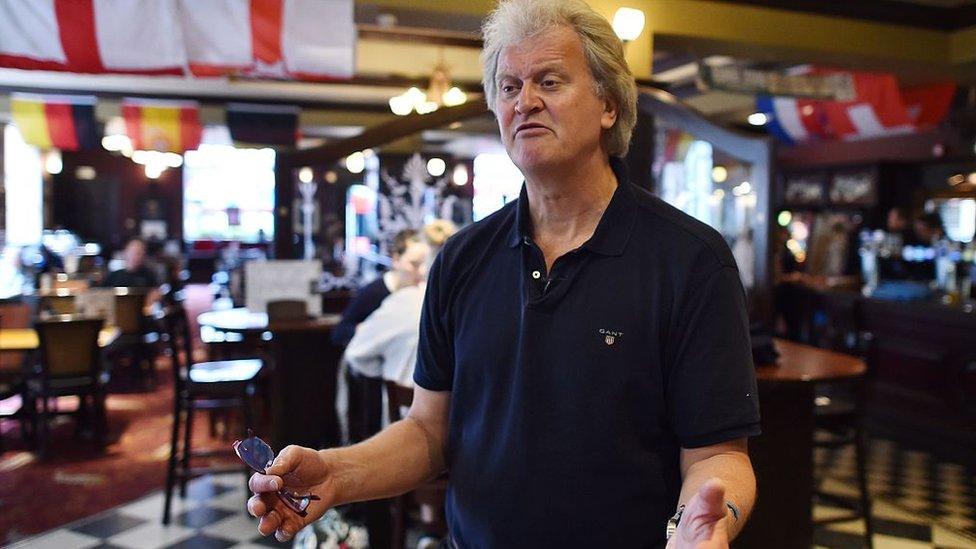Wetherspoons chairman criticises 'dinner party' Budget
- Published

Tim Martin claims the Chancellor delivered a 'dinner party' Budget
The chairman of JD Wetherspoons has criticised the Chancellor for a "dinner party" Budget that failed to tackle tax inequalities between pubs and supermarkets.
Tim Martin said pubs paid 20% VAT on food sales while supermarkets paid "almost nothing", enabling them to subsidise alcoholic drink prices.
He said this favoured those who held dinner parties at home.
The company has previously highlighted what it sees as unfair treatment.
"In effect, this was a Budget for dinner parties, no doubt the preference of the Chancellor and his predecessor - dinner parties will suffer far less from the taxes outlined above, whereas many people prefer to go to pubs, given the choice."
He said "the biggest danger to the pub industry" was that it was taxed differently to supermarkets.
He said the firm's business rates bill will increase by £7m this year.
It calculates supermarkets paid "less than 2p per pint for business rates, whereas pubs paid around 18p per pint".
Electricity would cost the company £4m, excise duty £7m and the apprenticeship levy £2m, according to the Wetherspoons boss.
The newly announced pub tax relief made little difference, Mr Martin added.
'No one a winner'
The British Retail Consortium, which is the trade association for the UK retail industry, said it was not helpful to "pitch" one business against the other especially when the current system was "not fit for purpose in the 21st century" and needed "fundamental reform."
In a statement it said: "The argument for business rates reform is far bigger than individual companies; it is about recognising that the current system is no longer workable for the retail industry as a whole or for any type of business for that matter.
"The total annual rates bill for the retail industry is currently £7bn - nearly one-quarter of all receipts - far more than any other industry.
"Over the next three years to 2020 the retail industry as a whole will be paying £2bn more in business rates than they did in the previous three years and supermarkets will account for a sizeable proportion of this.
"No one is a 'winner' from this revaluation." The BRC added.
On Wednesday the Chancellor provided tax relief of about £1,000 per pub in 2017, with a rateable value of less than than £100,000.
Philip Hammond said this would help 90% of pubs in England.
He also capped bills for companies losing small business rate relief and provided a £300m discretionary relief fund which local authorities could target towards individual hardship cases.
The change in business rate payments from 1 April are linked to the revaluation of property in the UK.
Mr Martin said: "Companies like Wetherspoons, on examination of the fine print of the Budget, are not, in fact, eligible for the £1,000 per annum decrease in business rates, in any event".

Mr Martin's comments came as the 900-strong chain announced its annual results.
In its results for the 26 weeks ending 22 January, pre-tax profits before exceptional items rose 42.8% to £51.4m.
Mr Martin said in the six weeks to 5 March 2017, like-for-like sales rose by 2.7%, while total sales fell 0.2%.
He said significantly higher costs and an expected fall in like-for-like sales meant the company remained "cautious" about the next six months.
Shares fell almost 3% in morning trading in London to 939p, but have risen by about a third over the past 12 months.
- Published3 March 2017
- Published9 September 2016
